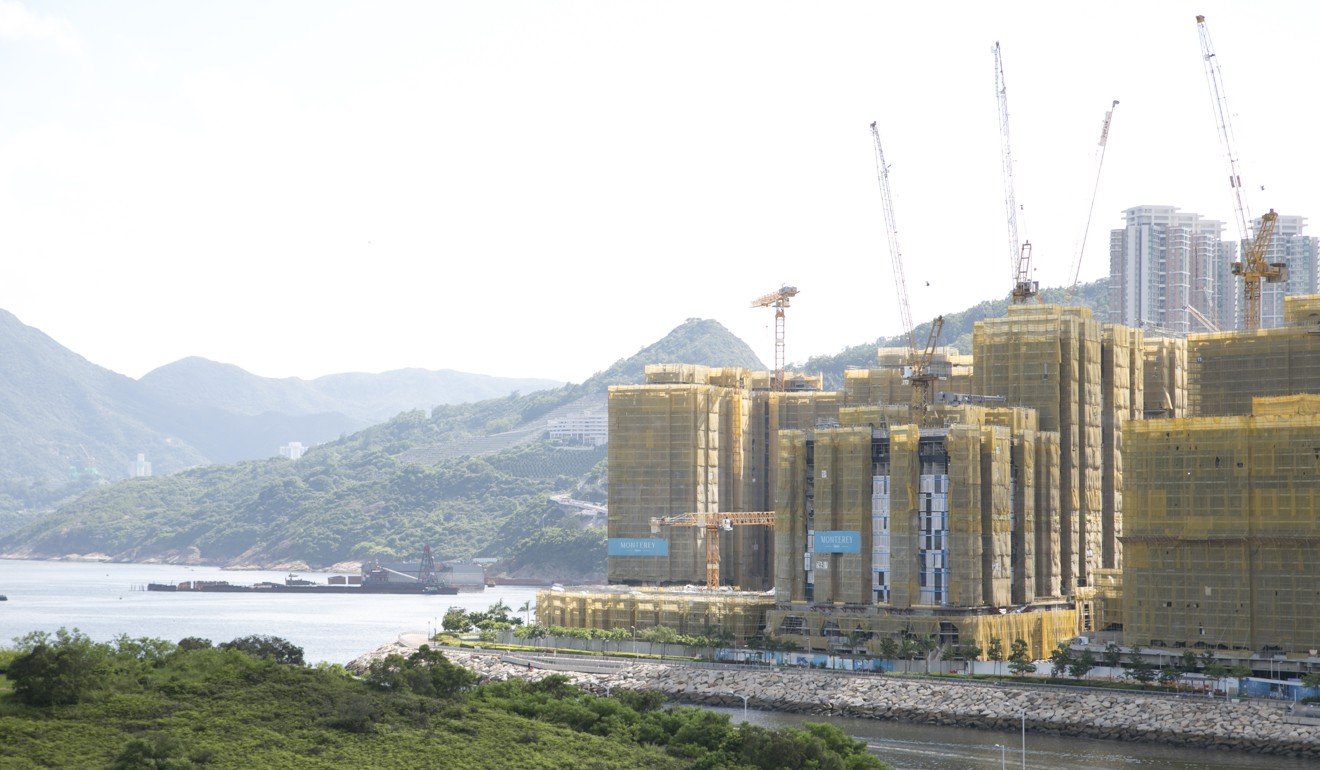
With land reclamation, an area the size of Sha Tin could be added to Hong Kong, housing minister says
Frank Chan Fan described reclamation as a ‘very feasible’ way to boost land supply but green groups warned of the environmental impact of the practice
An area the size of Sha Tin could be added to Hong Kong if the government decides to go ahead with reclamation to expand land supply, the city’s housing minister Frank Chan Fan said on Monday.
Describing reclamation as a “very feasible” way to increase space, he echoed the stance of Chief Executive Carrie Lam Cheng Yuet-ngor, who the day before declared that she “dared” to say the city needed to pursue the option.
But Chan’s remarks drew a backlash from green groups, who warned that the environmental impact of such large-scale reclamation could not be underestimated.
On a radio programme, Chan, who is also minister for transport, acknowledged he knew of the need to minimise harm to the environment.

“We need more land. But at the same time, we also need to do conservation work. How do we strike a balance between development and conservation? Before we carry out reclamation, we must conduct an environmental assessment and do it well,” the minister said.
“We hope that … we can keep the natural ecology in an ideal state.”
If the government went ahead with land reclamation, Chan said it could end up with a new area larger than Sha Tin New Town, which is about 3,590 hectares.
Sha Tin New Town was built on land mainly reclaimed from the Tolo Harbour in the 1970s. Chan did not give a potential time frame for when the government would make a decision.
Land reclamation is one of 18 options for Hong Kong to get 1,200 hectares of land for development in the next three decades. These options were compiled by a government-appointed task force, and a public consultation is ongoing.
Carrie Lam reflects on pressing issues of property prices and land supply
Roy Tam Hoi-pong, founder of conservation group Green Sense, said the government had been playing down the impact of reclamation.
“It will not only harm the environment in Hong Kong, but [we must also consider] where you take the sand from,” he said, adding that sand from the mainland and Vietnam had been used in previous cases of reclamation.
Dr Cheng Luk-ki, director of Green Power, accused the government of playing with words by saying that officials would minimise the impact on the environment.
“Reclamation is definitely bad for the environment … there will be a permanent loss of seabed,” he said.
We need more land. If we build more buildings on existing land...they will be built even more densely together. That is not a good thing for Hong Kong’s long-term development
Even if reclamation does not take place in areas where dolphins are found, Dr Cheng said it could still harm the dolphins because the overall marine system is affected.
Wong Kam-sing, secretary for the environment, said on Monday that if reclamation is to take place, it should not be adopted in ecologically sensitive areas. He added that under the city’s regulations, environmental impact assessments must be conducted before any mega projects, including reclamation, are carried out.
On another radio programme, Chan said land reclamation was very feasible, realistic and practical, noting it had been embraced by many countries.
“We need more land,” he added. “If we build more buildings on existing land … they will be built even more densely together. That is not a good thing for Hong Kong’s long-term development.”
Asked what could happen if the consultation eventually showed the public opposed reclamation, Chan said such concerns would not interfere with boosting land supply if environmental concerns could be addressed.
The measures were announced on the same day government figures showed home prices in May climbed for the 26th straight month, although at a slower rate.
On Lam’s proposal to split the Transport and Housing Bureau into two, Chan said if that happened, he would want to head the housing bureau because he was determined to tackle the problems the city is facing.
On a separate programme, Chinachem Group chief executive Donald Choi Wun-hing said that if the government was willing to sell land at lower prices, property developers could sell flats more cheaply as a result.
Choi believed officials could consider inserting terms in land sales agreements stating, for example, that developers could only sell flats at a profit margin of 10 to 15 per cent.

